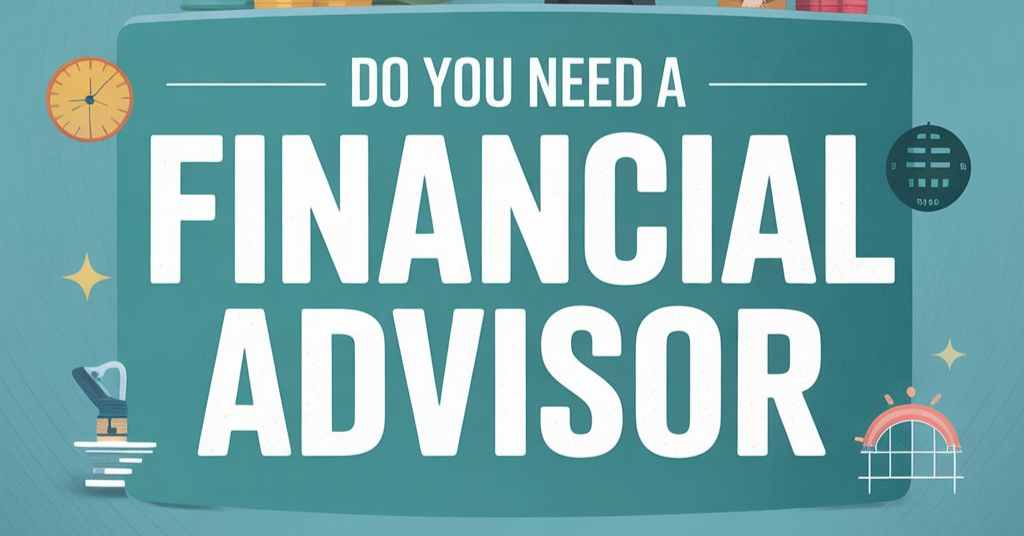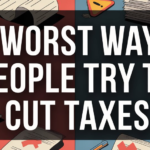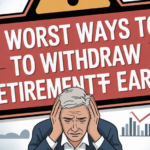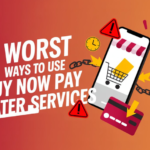Managing money today is far more complex than previous generations dealt with. Between superannuation rules, investment choices, tax structures, insurance decisions, and planning for retirement, many Australians wonder: “Do you need a financial advisor?”
This blog breaks down everything in clear, practical language so you can decide confidently — with real Australian examples, fee breakdowns, and common scenarios.
✅ What Does a Financial Advisor Actually Do?
In Australia, financial advisors (or “financial planners”) help individuals manage and grow their money. Their services may include:
- Superannuation advice and consolidation
- Investment strategy (shares, ETFs, managed funds)
- Retirement planning
- Budgeting and cash flow planning
- Tax-effective strategies
- Personal insurance advice (life, TPD, income protection)
- Debt and mortgage guidance
- Estate and succession planning
Advisers in Australia must hold an Australian Financial Services (AFS) licence or be authorised under one, and many follow ASIC and APRA regulations.
⚠️ Important: Always check the Financial Advisers Register via ASIC before working with anyone.
✅ When: Do You Need a Financial Advisor
Here are strong signs you should consider getting professional advice:
✅ 1. You’re unsure how to structure your super
Many Australians don’t know:
- Whether to switch from a default MySuper fund
- If salary sacrificing is worth it
- How much they need for retirement
- How to consolidate multiple super accounts
A licensed advisor can show you how contributions, risk levels, and strategies affect your future.
✅ 2. Major life changes are happening
Events that often trigger the need for advice:
- Marriage or divorce
- Starting a family
- Buying property
- Receiving an inheritance
- Serious illness or disability
- Selling a business
✅ 3. You don’t have time or interest in managing investments
If you’re busy working, raising kids, or simply not interested in researching funds and tax strategies, an advisor can take the responsibility off your plate.
✅ 4. You’re approaching retirement
Australians today can easily live 20–30 years post-retirement. Knowing how much income you can safely draw from super and investments is critical.
✅ 5. Tax and investment decisions feel overwhelming
Maximising tax deductions, managing CGT on investments, and structuring wealth properly can be confusing without professional help.
✅ When You Might Not Need One (Yet)
You can DIY your finances if:
- You’re confident using tools like Super fund calculators, CommSec, Sharesies, or Vanguard
- You’re in early career stages with simple income and goals
- You use industry or retail super funds with managed investment options
- You’re comfortable budgeting and investing yourself
You might not need an advisor if you’re:
- Debt-free except for your mortgage
- Managing your own ETFs or index funds
- Actively tracking your savings and super
- Reading up on finance independently
However, DIY works only if you stay disciplined and informed.
✅ How Much Does a Financial Advisor Cost in Australia?
Financial advice in Australia is more regulated now, which means higher standards — but often higher fees too.
Common fee structures:
1. Upfront (Statement of Advice)
Typically: $1,500 to $4,500
This covers personal financial planning documentation.
2. Ongoing annual advice
Usually: $2,000 to $7,000+ per year
Covers reviews, portfolio monitoring, and adjustments.
3. Hourly rates
Average: $200 to $500/hour
4. Percentage-based fees (Assets Under Management)
Advisors may charge 0.5% to 1% per year of your managed assets.
✅ Fee Impact Example (Real Calculation)
Let’s say:
- You have $200,000 invested through an advisor
- They charge 1% per year
- Your investments earn 6% annually
Without advisor fees:
$200,000 growing at 6% for 10 years = $358,000+
With 1% fee (net 5% return):
$200,000 growing at 5% for 10 years = $325,800+
💰 Difference = $32,200 lost to fees over 10 years
So, the advisor needs to add VALUE that exceeds the cost — through better strategy, tax savings, or investment performance.
✅ Pros of Using a Financial Advisor in Australia
✔ Helps with tax-effective strategies (salary sacrificing, offsets, CGT)
✔ Guides you through retirement planning and drawdown rules
✔ Sets realistic goals with timelines
✔ Helps avoid emotional investing decisions
✔ Keeps you accountable
✔ Advises on life, TPD, trauma, and income protection insurance
✔ Helps restructure finances after divorce or inheritance
✔ Understands constantly changing legislation
✅ Cons to Consider
❌ Costs can reduce long-term returns
❌ Some advisors push products with commissions (less common now)
❌ Not all advisors are equally skilled
❌ Loss of control if you disengage from your finances
❌ May lead to unnecessary complexity if your needs are simple
✅ Real-Life Scenarios in Australia
✅ Scenario #1: Young Professional (Age 30)
- Income: $95,000/year
- Super balance: $55,000
- Goals: buy first home in 5 years + long-term investing
A financial advisor could help:
- Decide between salary sacrifice or saving outside super
- Structure investments (ETFs vs managed funds vs property)
- Access the First Home Super Saver Scheme
- Set up insurances through super
✅ Scenario #2: Couple in Their 40s
- Mortgage: $480k
- Kids: 2 in private school
- Super: Combined $300k
- Investments: Mixed shares & term deposits
Advisor value:
- Compare super funds
- Recommend family income protection
- Optimise tax deductions
- Build an investment plan for education and retirement
✅ Scenario #3: Near Retirement (Age 58)
- Super: $650k
- No mortgage
- Planning to retire at 65
Advisor helps:
- Decide pension phase vs lump sum
- Drawdown strategy
- Centrelink Age Pension eligibility
- Tax-effective wealth transfer
✅ DIY vs Advisor: Who Wins?
| Situation | DIY Option | Advisor Advantage |
| Simple super + savings | ✅ | Not required |
| Multiple investments | ⚠️ | ✅ Helpful |
| Retirement planning | ⚠️ | ✅ Essential |
| Tax strategy | ❌ | ✅ Important |
| Inheritance planning | ❌ | ✅ Needed |
| Time-poor professional | ⚠️ | ✅ Strong value |
| Early career goals | ✅ | Optional |
| Divorce/illness | ❌ | ✅ Critical |
✅ How to Choose the Right Advisor in Australia
Here’s a smart approach:
✅ Step 1: Check licensing
Use ASIC’s Financial Adviser Register.
✅ Step 2: Ask if they’re fee-only or commission-based
Fee-for-service is usually safer and more transparent.
✅ Step 3: Ask the right questions:
- What do you specialise in (super, retirement, investments, insurance)?
- How are your fees structured?
- Are you independent or tied to products?
- What ongoing support do I get?
- Can you explain your investment approach?
✅ Step 4: Read the Financial Services Guide (FSG)
This document must disclose fees, services, and conflicts of interest.
✅ Step 5: Compare 2–3 advisors before choosing
✅ Should You Use a Robo-Advisor Instead?
Platforms like Six Park, Stockspot and Pearler Micro-Investing offer automated investing at lower cost.
Pros:
- Fees as low as 0.3%
- No personal meetings required
- Good for beginners
Cons:
- No advice on tax, retirement, pension or estate planning
- No help during major life events
- Limited customisation
Robo-advisors are good for:
- Younger investors
- People with <$100k to invest
- Those wanting set-and-forget portfolios
✅ DIY vs Advisor — Quick Checklist
Answer YES/NO:
- I understand how superannuation works
- I can research ETFs, funds and investments confidently
- I know how to minimise tax legally
- I review my money goals regularly
- I’ve planned for retirement withdrawal strategies
- I have the right level of insurance cover
- I’m disciplined with money during market drops
- I know how much I need to retire
👉 If you answered NO to 3+, speaking to a professional may help.
Also Read: What to Ask Financial Counselors: Complete Guide with Examples
✅ Key Benefits Advisors Must Deliver (or They’re Not Worth Paying)
If you’re paying $2k–7k a year, they should be delivering:
✅ SMART super growth strategy
✅ Tax minimisation (salary sacrifice, offsets, deductions)
✅ Insurance protection
✅ Retirement planning with projections
✅ Investment diversification
✅ Emotional decision support
✅ Regular reviews and accountability
✅ Final Thoughts – Do You Need One?
You might need a financial advisor if you:
✔ Have $100k+ in super or investments
✔ Feel unsure about tax and retirement
✔ Are planning for kids or inheritance
✔ Have debt, multiple accounts or life changes
✔ Avoid finances out of stress or confusion
✔ Want expert guidance and accountability
You may not need one right now if your finances are simple, you’re financially confident, or comfortable using robo-investing and ASIC resources.










